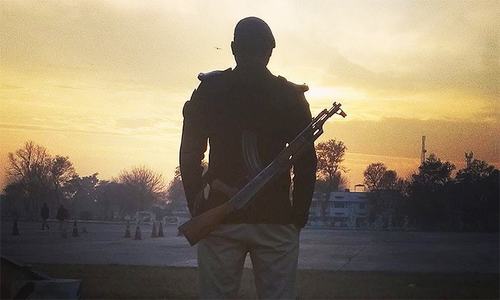A fake ‘emergency’ notification is doing the rounds on social media, claiming that Pakistan’s health ministry has advised the public to avoid crowded places till the end of March in view of the novel coronavirus outbreak.
The first paragraph of the message, that contains multiple spelling errors, reads: “Ministry of health’s emergency notification to the public that the coronavirus influenza outbreak this time is very very serious & fatal. There's no cure once you are infected.”

Another slightly altered version of the same message attributes the alert to “DOH Health Bulletin to the Public”.
Fact-check: it’s a hoax!
The text does not match the National Institute of Health’s advisories on coronavirus.
In Pakistan, the National Institute of Health has so far issued two advisories, one for health staff and institutions and the other for travellers.
See: As the coronavirus spreads, here are steps you can take to avoid contracting it
The latest travel advisory dated January 28 was issued after the increase in the number of deaths in China and the spread of the virus to many other nations.
The same message also went viral in other countries. The text has been circulated in India and Canada, claiming that the alert came from their respective health authorities.

Multiple users have copy-pasted the same message across social media platforms around the world.
'Keeping throat moist?'
The fake message suggests that a prevention method is to keep one's throat moist. “Do not let your throat dry up. Thus do not hold your thirst because once your membrane in your throat is dried, the virus will invade into your body within 10 mins,” it reads.
Official public advisories mention no such precaution related to the throat and advise measures such as maintaining personal hygiene, wearing masks, and avoiding contact with people who are ill.
The alert also claims that children are more prone to the virus. Again, the health authorities have not specified any age group that is more vulnerable to the virus.
The new coronavirus — which initially infected people in the Chinese city of Wuhan and has now spread in many Asian countries as well as the Middle East, Europe, Australia and the United States — has so far claimed lives of 106 people in China with more than 2,700 cases since its outbreak in late December.
So far, there has been no confirmed case of the virus in Pakistan. No medical lab in Pakistan has the facility to test for the novel coronavirus.
No vaccine has been developed to prevent the virus so far.














































